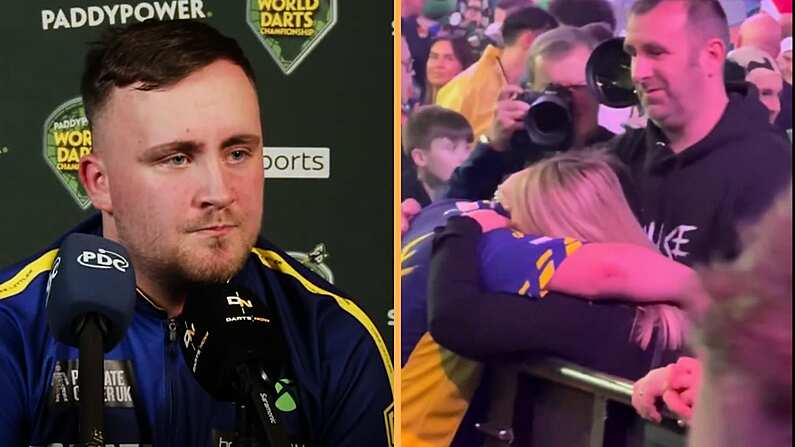Speaking to Dominic Fifield in what is an honest and extremely important piece for The Guardian, at his own request, Steven Caulker has outlined the alarming lack of consideration given to mental health in the world of professional football.
Caulker is not the first, nor will he be the last, player to publicly admit that they need help after struggling privately for some time, and while he deserves massive respect for speaking in a way that will surely encourage others to take the actions he has to get his life back on track, his words paint a frankly grim picture of how many football clubs are run.
The article absolutely should be read in full, as Caulker's personal struggles are truly an eye-opener, but what I'd like to highlight here are how badly the clubs that he played for handled his problems when they were presented with them.
Shortly into the piece you will find an alarming line from the former Southampton and Liverpool player:
This year was almost the end. I felt for large periods there was no light at the end of the tunnel.
That is depression, almost by definition.
When a person finds themselves in this state, the one thing we would all hope they do is seek help, but Caulker did, and what he got in return was, for the most part, shockingly negligent.
At Southampton, after accepting that he needed to reach out, one doctor tried to help him, but the most common advice he was given was to basically play through it.
You always think you can rein it back in again and the money provides a false sense of security. But at Southampton I realised, mentally, I was gone. I wasn’t playing, my career was going nowhere and I had to reach out to someone. The doctor there tried to help me but others were just telling me to go out on the pitch and ‘express myself’.
An infuriatingly casual response, saying something like that can only make the situation worse.
What caused Caulker's depression was what he described as crippling self-doubt and anxiety, and he claimed that the money he was earning papered over the cracks until he realised he couldn't cope any further.
He would go on to suggest that players who feel similarly to how he did should talk to the PFA rather than their club, because a huge problem in talking to your manager or teammate is that you will lose your place in the side, and it could spell the end of your career.
I’ve spoken to so many players who have been told to go to the Sporting Chance clinic and they’ve refused because they know, if they take time off, they’ll lose their place in the team. Someone steps in and does well, so you’re gone. That dissuades people from getting help. You feel obliged to get on with things.
It's just another thing that someone on the outside looking in could never see, how hard it is to actually ask for help when you know how damaging it may be for your career prospects. That's why we are hearing about the likes of Caulker, and Aaron Lennon recently, who went public after hitting rock bottom.
It's scary to think how many more have similar fears and feelings, yet know they have to 'pull their socks up' and keep fighting for their livelihoods.
Caulker would continue to recount anecdotes from his addiction to gambling and alcohol, before sharing his experiences at Tottenham which were genuinely infuriating to read.
Tottenham sent me to Bristol City on loan at 18 and they put me in a flat in the city centre surrounded by nightclubs, two casinos opposite, the kind of money I’d never seen in my life, and no guidance whatsoever. I was pulled once by a member of staff and told I’d been spotted in the casino at 3am but their attitude was: ‘What you do in your spare time is your business. Just don’t let it affect your performances out on the pitch.’
A clear cry for help, but it's grand as long as you come up with the goods on Saturday.
Spurs continue to come off in a bad light as Caulker revealed the way chairman Daniel Levy reacted to a string of incidents as he began to lose the run of himself with depression sinking in deeper.
On the one hand, Levy did not know how badly Caulker was suffering, but there were enough warning signs to suggest something was not right.
He just said: ‘The way you act is unbelievable. You either sort yourself out or go but I can assure you, if you leave, you’ll be going down, not up.’ I was young, stupid. I took it as a challenge, a chance to prove him wrong. I was so immature. So I went to Cardiff and, for six months, everything was amazing. I was captain, the manager, Malky Mackay, knew I had some issues but offered to be there for me. I felt wanted, so there was no gambling, no heavy binges but the second he was sacked, all the demons came back.
Unsurprisingly, Malky Mackay actually taking the time to make Caulker feel wanted while accepting his personal struggles made a huge difference. A human connection can go a hell of a long way in these circumstances, which makes the above suggestion that he was a footballer first, and an actual person second, look increasingly frustrating.
It was another manager that would come to the rescue of Caulker after QPR attempted to wash their hands of him. Caulker had arrived at the club before they were relegated, and after injury stalled a promising start to the season in the Championship, they tried to sell him to Russia, something Ian Holloway noticed was a highly irresponsible thing to do.
QPR and my agent tried to push me towards Lokomotiv Moscow in January, saying it would be a fresh start. Part of me thought the money they were offering could solve all my problems but why would being on my own out in Russia help? I had no idea how to break the cycle and being in Moscow while still injured just felt a recipe for disaster. The manager, Ian Holloway, was actually telling me to stay. I’d been in his office close to tears, so he said: ‘How anyone could think sending you there would be a good idea is beyond me. You need to get yourself right.’ I appreciated him for that but, for the club, I can see why it was appealing to be shot of me but I was in no fit state to move and eventually pulled the plug on it.
It's a really good thing he did pull the plug, as a move to Russia where Caulker knew nobody, didn't speak the language, and a fan culture that doesn't seem the most understanding for foreign players struggling to settle, would have only made things worse.
Caulker is now off of alcohol and hasn't placed a bet this year.
From the final paragraphs of the Guardian article it sounds very much like he is on the road to recovery, and hopefully his honesty in revealing the dark days of his past goes some way to letting someone, somewhere know that there is always hope.
What would be simply unacceptable, however, is if measures are not taken to ensure that clubs do not act as alarmingly casual when a player comes to them and admits they have a problem, as they did when Steven Caulker knew he was on the road to self-destruction.
If you haven't yet read Caulker's views in full, we highly reccommend that you do over on TheGuardian.co.uk, in particular for his positive outlooking going forward.











